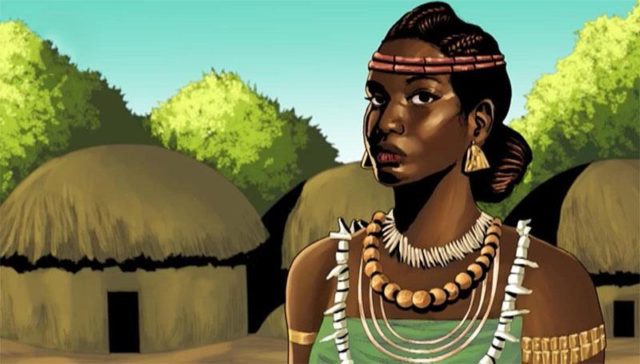Abla Pokou founded the Baoule country in the Ivory Coast around 1770 after leading her people from the present-day nation of Ghana to that country. She supposedly gave her son to the river as a sacrifice so that her people could cross.
Early in the eighteenth century, Abla Pokou was born. The co-founder of Ghana’s Ashanti Empire, King Osei Tutu, was her uncle. Dakon, the second brother of Abla Pokou and one of the heirs to the kingdom, was killed as a result of a power struggle that started after his passing. To save her life and ensure the security of her family, Abla Pokou escaped.
According to legend, when Queen Abla Pokou and her attendants arrived to the Comoe River, they were unable to continue their journey since the river serves as a natural boundary between Ghana and the Ivory Coast.
The river was at its highest level due to the heavy rainfall, making it nearly impossible to cross. According to Queen Abla Pokou and the wise man who accompanied them, the river gods require a sacrifice in the form of a kid descended from a noble bloodline in order to cross the river. Abla Pokou therefore pushed her child into the river, where he vanished amid the waves.

However, according to tradition, something extraordinary happened and the trees on the bank bent their trunks to create a bridge. According to a different story, gigantic hippopotamuses suddenly appeared and created a bridge so that Abla Pokou and her group could cross the river.
After the crossing, Abla Pokou called out to her friends, “Bâ wouli,” which translates to “The child is dead.” It’s possible that this speech inspired the Baoule (or “ba wouli”) people of present-day Ivory Coast to adopt their name.
According to media reports, Professor Kouame Rene Allou believes that Queen Abla Pokou did not sacrifice a child. According to other tales, the Comoe river is frequently so low that you can ford it because of rocks that are visible on the surface. The Baoule most likely carried out this action.
Living in Namounou, a Bwake village close to Akawa, was Queen Abla Pokou. The phrase “look after the mother” is namounou.
Sadly, when the queen died, the settlement of Namounou became abandoned. She was buried in the N’draba River. She was succeeded by Akawa Boni, who settled in Sakassou.
Legacy of Queen Abla Pkou
In Ghana and the Ivory Coast, Queen Abla Pokou is still honored in oral and written literature, but portrayals of her are hard to come by today.
Apart from a metal statue on Abidjan’s République Square, there is no memorial or museum dedicated to her. Some fashion designers, on the other hand, have designed styles that feature Queen Abla Pokou.




